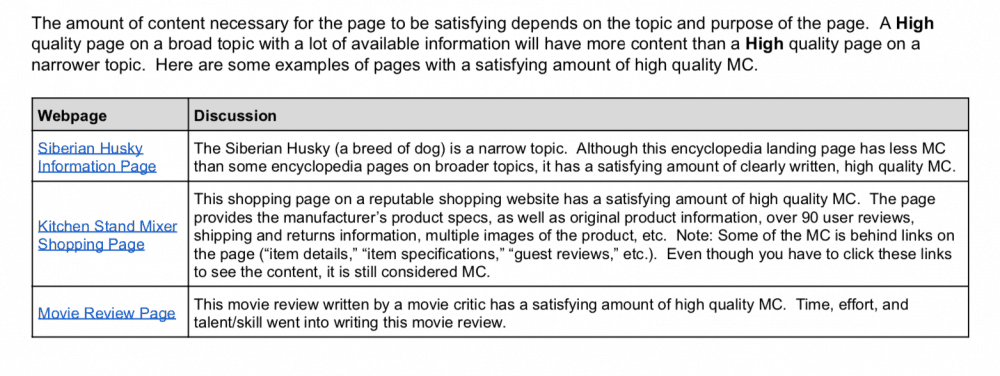If you want a website copywriting quote that’s in any way meaningful, make sure you include this info in your brief. It doesn’t matter where you’re based–New Zealand, Australia, the U.S. or the UK–copywriters everywhere calculate quotes based on the same criteria.
How much would you quote to write copy for a 5/7/10-page website?
I often get inquiries like this. They usually come from established businesses wanting a new site or, very occasionally, a web designer (who really should know better. Come on, guys!).
And I get it. Organising website copy is often a brand’s first experience of working with a professional writer. Of course you want to know what it’s going to cost. But asking a copywriter for a quote without supplying any other information is like asking a builder how much they’d quote to “build a house” or a dentist to “fix my teeth”. There’s just not enough info there to make any kind of realistic assessment.
So let’s fix that. Here are nine important pieces of information to share when you ask for a copywriting quote. There’s no need to go into huge detail—that’s for a Zoom call or a meeting—but at least you’ll give the copywriter enough info to supply you with a good starting figure. Which saves everyone time.
If you’re considering getting a new website and employing a copywriter to create some or all of the copy, feel free to bookmark this page. And then click on the link after this post to download an email template for your quotation request. I hope it makes the process of collecting quotes quicker and easier for you.
1. Is there an existing website?
If no, let the copywriter know and move on to question 2.
If yes, supply a link to it and give the copywriter one sentence each on:
- What you like/dislike about it
- Why you want to change it
- How much content you want to re-use. If you’re not sure about that, you may need a content audit.
This stuff is important because it will determine how long the copywriter needs to do the job—which in turn will influence the quote.
The next two questions are the most important on the list. And not just from a copywriting standpoint.
2. How much branding work have you done?
I’m specifically talking about branding here in relation to:
- Voice (your brand’s personality—funny, authoritative, serious, quirky, friendly, etc.)
- Tone (how you communicate that personality across different platforms and to different audiences—long or short sentences, use of slang or humour, dry or descriptive language, etc.).
Larger organisations may have a style guide that covers these. In my experience, most brands don’t.
If you haven’t identified your brand’s voice and tone, a copywriter can’t do their best work for you.
Depending on background and skills, some copywriters can help you with this aspect of branding. It pays to ask.
3. How well do you know your target market(s)?
It doesn’t matter how skilled the copywriter is, if you don’t know exactly who you’re targeting—and I’m afraid “everyone in the world who wants my product/service” or “women” won’t do it—you’re not going to get effective copy. You’ll only get a copywriter’s best guess. As a business owner, that should strike terror into your heart.
It’s easy to tell when brands don’t have in-depth knowledge of their market. They emphasise the features of their product or service rather than the benefits these things bring to their customers.
If you’re not sure who you’re targeting, you’re better off using your money to engage someone to help you work it out. As with branding above, some copywriters can assist. Ask around.
I can’t stress this enough—if you don’t know who you are (branding) or who you want to reach (target market), put the website project on hold until you do. Otherwise, you’ll blow money on a product that isn’t going to get you the right results.
4. Has any SEO keyword research been done?
The answer to this one is generally “no”. If you’re like most other SMEs, Search Engine Optimisation (SEO) is a mystery and a bit scary and you wouldn’t know where to start. That’s perfectly understandable and okay. You’ve got enough on your plate. But if you want other people to find you online, someone will have to do the research eventually.
Some web designers take care of SEO fundamentals as part of their website build package. Others offer it as an optional add-on. Some copywriters do keyword research too. Again, ask.
5. Have you done any competitor research?
If yes, what do you like/dislike about their content?
If no, do you want the copywriter to assess it for you?
The importance of competitor research extends beyond your website; it’s good business to know what else is out there. But you know that already :).
And now we’re into nuts and bolts.
6. How many pages/words do you need?
By the time you’re looking for a copywriting quote, you’ll already know how many website pages you need. You might only want a copywriter to work on some pages rather than all, especially if you’re on a budget.
As a bonus extra in relation to word counts and SEO, each of your pages will need enough words to provide prospective customers with an expert, authoritative, trustworthy (E-A-T) response to their search queries. Here’s a snippet from Google’s Search Quality Rating guidelines. “MC” here means “Main Content”.

The takeaway here is that the more useful words you can put on a page, the better.
But that also has to be balanced against the needs and expectations of your target market, who may be turned off by screeds of words.
I know. There’s a lot to think about.
7. How far down the track is the project?
This one won’t materially affect a copywriting quote but it may determine whether or not the copywriter wants to take on the job.
In an ideal world, you’d put everyone involved in the project in a room together right at the start and make sure they’re all on the same page by the time they leave.
I heap many blessings on the clients who see the value of this. More often, though, the copywriter is the last person to come on board—usually after the design’s already been signed off and a large part of the budget already committed.
Bringing in a copywriter at the end isn’t necessarily an issue if the design is copy-friendly but it poses a major challenge if it isn’t. I’ve worked on projects that put the site’s design above everything else and the client invariably got a lesser-quality end product because of it.
Great design might attract and hold attention but words get customers over the line.
Words do the selling. Don’t make them an afterthought.
If you can’t get a copywriter in at the start, at least leave yourself some wriggle room before signing off on the design.
8. What’s the deadline?
Here’s the short version: The tighter the deadline, the more expensive the job will be.
And the longer version: Three months is great. Six weeks might be doable. But anyone wanting a copywriter to drop everything and a prioritise a 10-page new build that’s launching in under two weeks should understand that it’s going to cost them. Quite a lot.
9. What’s your budget?
Some businesses really struggle with answering this one because they:
- Are afraid they’ll end up paying too much.
- Have no idea how much to budget.
- Don’t understand why the copywriter doesn’t charge by the hour.
I can’t speak for my entire industry but here’s how I’d respond to each point:
- Most copywriters deliver measurable results and excellent value for money. The reputational damage we’d suffer otherwise is more than enough incentive to keep us honest.
- Fair enough. Ask around—other business owners, web designers—and get more than one quote.
- Some copywriters might. But most of us don’t because we don’t sell our time; we sell our expertise.
No-one can make you talk about budget when requesting a copywriting quote but it puts out a couple of important messages if you do.
It says you’ve done some homework and you place importance on copywriting. Knowing that, most copywriters would walk on hot coals for you ever after.
And it saves time. The copywriter will know at a glance if your budget will be enough to cover what you want done. If it is, terrific! You can start talking next steps. If not, the copywriter will let you know how much of it is achievable. Then the negotiating starts.
Get a copywriting quote that’s actually useful
Building a new website can be like the digital equivalent of a Grand Designs episode, with all the attendant drama. There are lots of decisions to make and the process can be stressful. There’s jargon to contend with and briefs to write and a pretty big project to manage.
But hopefully, this guide will help you get the kind of copywriting quote that’s actually useful. As a bonus, most of the information you’re supplying is exactly what your web designer, graphic designer and/or video producer will need as well. Do it once and do it right—and don’t forget to download the email script we’ve created for you. Adapt and use it whenever you need a copywriting (or any other creative industry) quote.
Good luck with your new website—may it be beautiful, functional and bring you many conversions!

